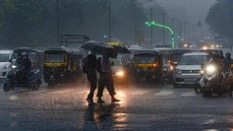
The department further stated that these dates are expected to be generally early by up to 2 weeks over large parts of the country. It adds that judicious use of these predictions in planning agricultural activities will lead to safe sowing and enhanced crop and food production.
The institution further reiterated that the information should be widely available to extension services and agencies that have the responsibility of advising farmers on the appropriate time of planting and varieties to be planted.
"In an agrarian economy like The Gambia, where rain fed-agriculture is predominant, rainfall onset for the commencement of farming season is crucial. It affects the establishment of crops, agricultural production and subsequently, national economies. Failure in the timely establishment of rainfall onset usually affects farmers."
"It is essential that after a given date, the rain will become fairly continuous and sufficient to provide adequate soil moisture for and after planting is maintained as the season advances for the successful establishment of crops."
Water Resources Department also stated that the 2023 rainfall season is expected to undergo more variability than the 2022 season with events such as early to normal onset, late or normal withdrawal of rains and short to average dry spells. The Department promised to undertake to provide weekly climate and short to medium-range weather forecasts to better anticipate the impacts of intra-seasonal climate events.




